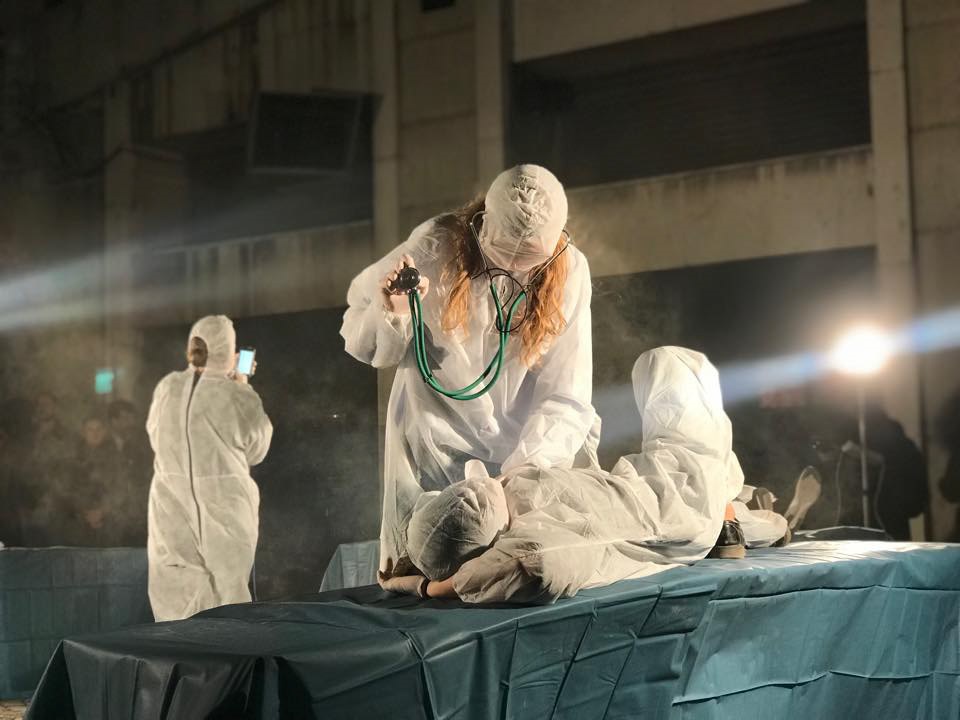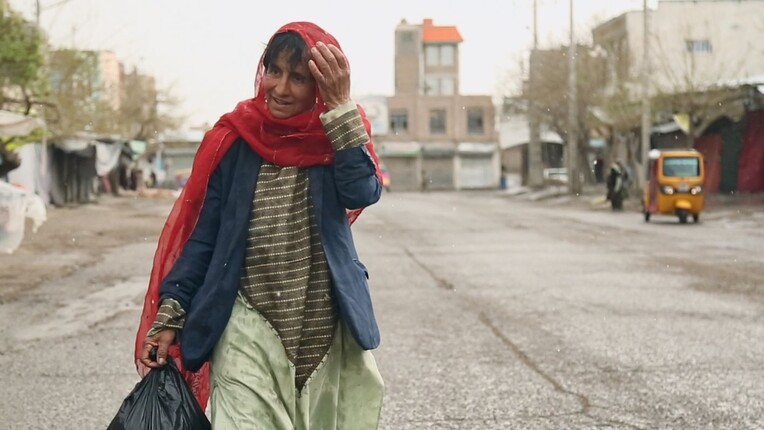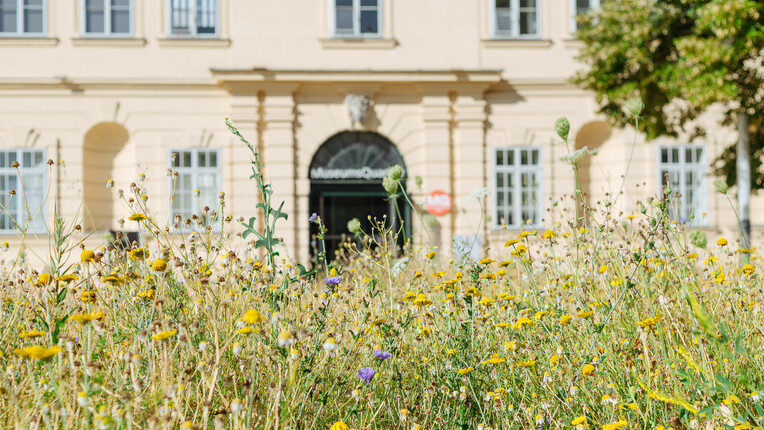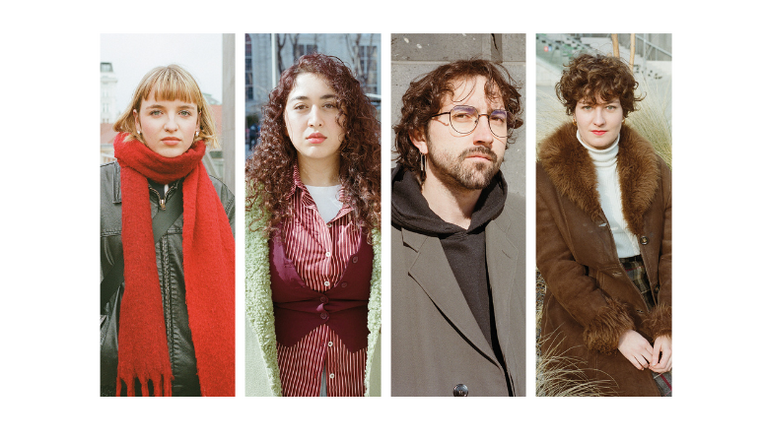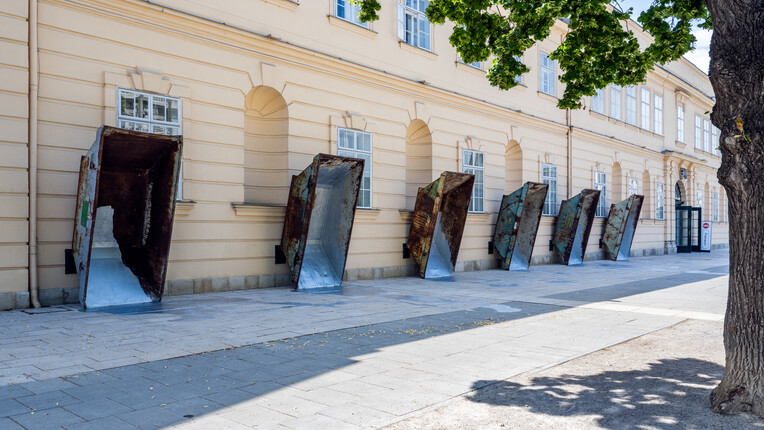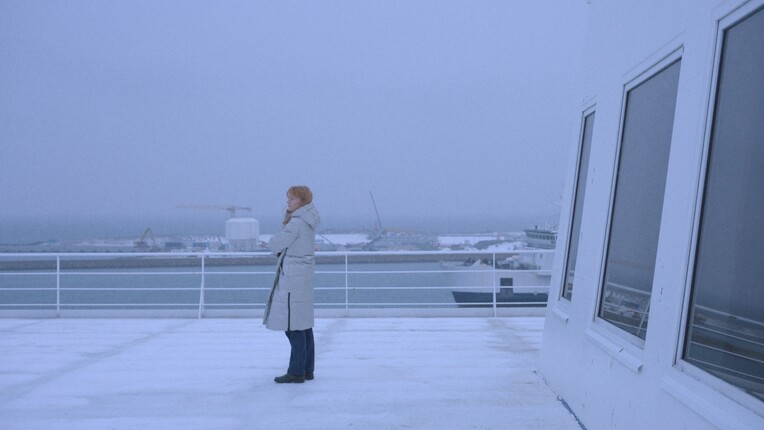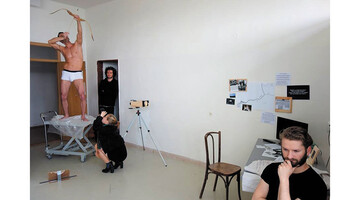
“I understand theatre as a certain metasystem of the present.”
Artist-in-Residence Martin Toldy in conversation with Mária Janušová
Mária Janušová: The use of performance or video is typical for your work. Why do you choose these types of media? Have you ever wanted to express yourself through a more materialistic medium?
Martin Toldy: I have been thinking about this question for a long time, and I concluded that, in my case, the choice of the medium is influenced by the leaders or assistants in the studios in which I studied (Nóra Ružičková, Anča Daučíková, Szabolcs KissPál, Maja Štefančíková or Ilona Németh). They shaped my thinking about the artistic output, and it was closer for all of them to express through an intangible form. They taught me a lot, influenced me in many ways, and I simply adopted their media.
One of your series is called ‘Invalid Theatre’. Were you inspired by Samuel Beckett's absurd drama? Can you tell us more about your motivation behind this series?
Definitely yes! The concept of the absurd drama is beautiful, and Samuel Beckett is a very wise and inspiring author, but there are many more inspirations. I used the title ’Invalid Theatre’ for the first time together with Nóra Ružičková in my bachelor’s thesis. I think that its annotation perfectly captures my motivation. You could say that it has become my private manifesto and the key to how I approach the works within the ’Invalid Theater’ series:
“The intention of the bachelor’s thesis is the author's reaction to the need of emancipation from the formal limitations of individual types of visual, acting-performing, conceptual, literary, musical, and multimedia art, and from their mutual anchoring in the theatrical apparatus. I understand theatre as a certain metasystem of the present, and with verification and reflection of the individual attributes of this metasystem through the intermediate prism, I came to a compilation of the so-called Invalid form of dramatization and to a follow-up writing of the drama. The performance is conceived on the assumption of the givenness of the specific place and in the relation arising to it. An invalid feature is the abandonment of the spaces which are traditionally used for theatrical staging, and focusing on the spaces with similar authenticity, but within which we can feel at first sight that this is not their primary function. The unifying element is a feature of the inscenation, outside of the real frame of the peephole theatres. I decompose the theatrical apparatus either by accentuating or by denying of the separate components – a scene, a stage, an auditorium, actors, spectators, theatre employees.”
You are a founding member of the performative group Marína Abramovič Po Sebe Neupratuje (Marína Abramovič does not clean up after herself). Why this name? How did it begin? What do you focus on in this artist group? During the performances, you are all dressed in white overalls, so it is hard to recognize each one of you. Is it important for you to emphasize collective work, as a contrast to capitalism's preferred individualism?
Within our artistic bubble, to some extent, the name is a marketing move. But the truth is that it was created after our first performance when we were trying to clean up the gallery and one Ukrainian curatorial student said that sentence. You described our efforts very accurately! Yes, we consider it important, but not absolutely necessary. For us it is important to use critical thinking, which may be a cliché but true nonetheless.
Usually, you present your work in more alternative or non-gallery spaces. Is that related to the critique of classic museum institutions?
In certain works, yes. Especially in the works of our performative group, this aspect is perhaps more obvious. But criticism of museum spaces is not my primary topic. I appreciate the opportunity to create an artwork or a site-specific installation for a white cube as well as for non-gallery spaces.
It is interesting that you studied archival science before visual art. What made you choose this field and what led you to art? Do you think that the knowledge of archiving has influenced you in your artistic practice?
My friend Paulína Mačáková, who studied intermedia, brought me to art. She told me to apply for studies in that field. She thought I would enjoy it. I think time has shown that she was right. Archival science gave me a great advantage, especially in theoretical subjects, because I did already have knowledge of art history and philosophy. And when somebody asks me which languages I speak, I like to mention Latin, which was obligatory for us archivists.
You are currently a Q21 Artist-in-Residence at the MuseumsQuartier.
What has kept you busy during your residency?
The residency is a great place to ‘suck in’ new information from different contexts. I am currently researching the concept of psychologization of spaces, which sounds quite abstract, but I approach it that way. I am exploring the city and its people. I am taking a lot of pictures. I am aspiring to create a structure. I am trying to find or reveal a symbol that may help me in the future. It might even materialize during my residency. By the way, I would like to take this chance to say hello to my ‘Co-Artists-in-Residence’ and Ioana Paun, a great director and discussion partner.
Martin Toldy is a visual artist. He graduated from the Academy of Fine Arts and Design in Bratislava at the VVV studio (Visual, Verbal, Public) under the guidance of Martin Piaček and Dávid Koronczi in 2019 with a diploma thesis on the topic of Fields and Roles on Our Scene. He is the founder and an active member of the performative group Marína Abramovič Po Sebe Neupratuje.
Mária Janušová is a curator, art historian and PhD student at the Academy of Fine Arts and Design in Bratislava. Currently, she works as a curator for the Jozef Kollár Gallery in Banská Štiavnica, which is part of the Slovak Mining Museum.
